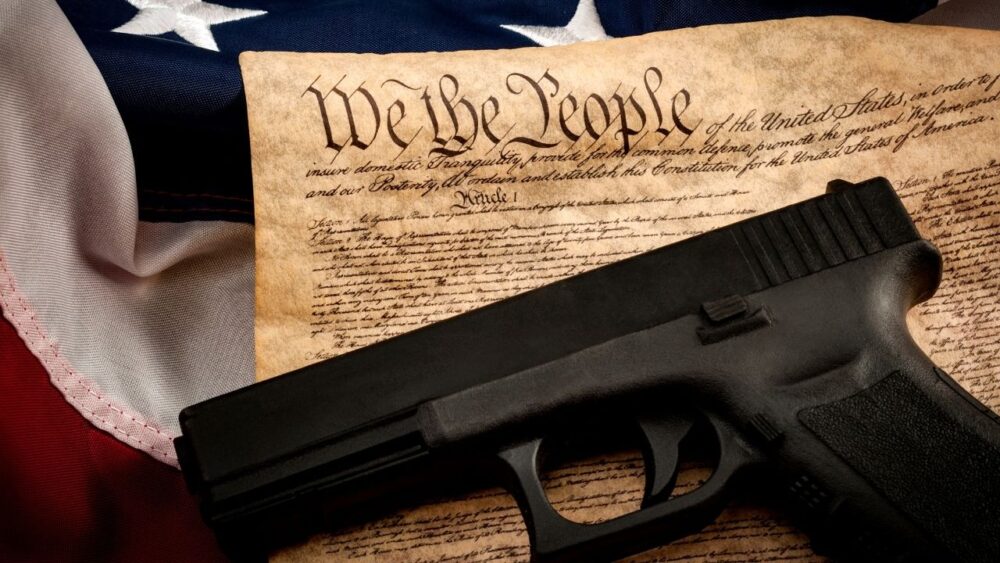(Texas Scorecard) – Lawmakers in the Texas House have approved a measure to preemptively prohibit the state from adopting most firearm-related red flag laws.
Senate Bill 1362, filed by State Sen. Bryan Hughes (R–Mineola) in the Senate and carried by State Rep. Cole Hefner (R–Mount Pleasant) in the House, was finally passed in an 86-53-1 vote on Wednesday.
The measure would disallow judges from issuing most extreme risk protection orders, also known as “red flag” orders or ERPOs, which prevent an individual from owning or purchasing a firearm during legal proceedings.
It would also bar local jurisdictions from accepting federal funding to implement or enforce an ERPO. An individual found to be in violation could receive a state jail felony conviction.
Under the measure, the only instances in which a judge could prevent an individual from owning or purchasing a gun during legal proceedings would be in certain firearm-related cases or through existing protective orders.
While Texas courts currently do not issue ERPOs, the measure is intended to prevent the practice, as an increasing number of states have begun to adopt it.
According to Ballotpedia, as of May 2025, 21 states—including California, Colorado, New Mexico, Florida, Indiana, Maryland, and New York—have explicitly enacted laws authorizing courts to issue ERPOs.
SB 1362 “reinforces Texas’ commitment to protect the rights of law-abiding citizens, while ensuring due process for all Texans,” Hefner said Tuesday when laying out the measure on the floor.
State Rep. Wes Virdell (R–Brady) shared a story about law enforcement officers in Maryland who visited 61-year-old Gary J. Willis’ house in the early morning to confiscate his firearms with “no actual evidence or due process.”
The visit took a turn after Willis resisted the officers. He was shot and died from his injuries.
Virdell also cited research from the RAND Corporation that summarized various studies on the effectiveness of ERPOs. Overall, the evidence showed inconclusive effectiveness.
After a lengthy point of order, House Democrats proposed a slate of amendments that ultimately failed, including several by State Rep. Vikki Goodwin (D–Austin) seeking to create new exceptions and strike certain provisions.
The only amendment eventually approved was one by Hefner clarifying that existing domestic violence protective orders preventing the purchase or ownership of firearms are not at risk under SB 1362.
State Rep. Erin Zwiener (D–Driftwood) questioned Hefner about the necessity of passing the measure.
“So, I think as I understand it, right now, it would take a law by the State of Texas—us passing a law—for there to be extreme risk protective orders. And after this bill is passed, it would take a law from the State of Texas for us to have extreme risk protective orders,” said Zwiener.
“Well, a rational person would see it that way,” responded Hefner. “But I do believe we’ve seen many cities and judges and prosecutors skirt the law, manipulate it, or work around it, come up with new things that we have to come down here and chase after them to try to rein them back in.”
The measure will now be sent back to senators, who are expected to concur with the limited changes ultimately approved by representatives.
Senators initially passed SB 1362 in late March.
Texas Gun Rights President Chris McNutt told Texas Scorecard that lawmakers’ passage of the measure was “long overdue and will help further protect Texans from future anti-gun administrations in D.C.”
He also thanked Hughes, Hefner, State Rep. Briscoe Cain (R–Deer Park), and House Speaker Dustin Burrows (R–Lubbock) for helping to push SB 1362 across the finish line.


